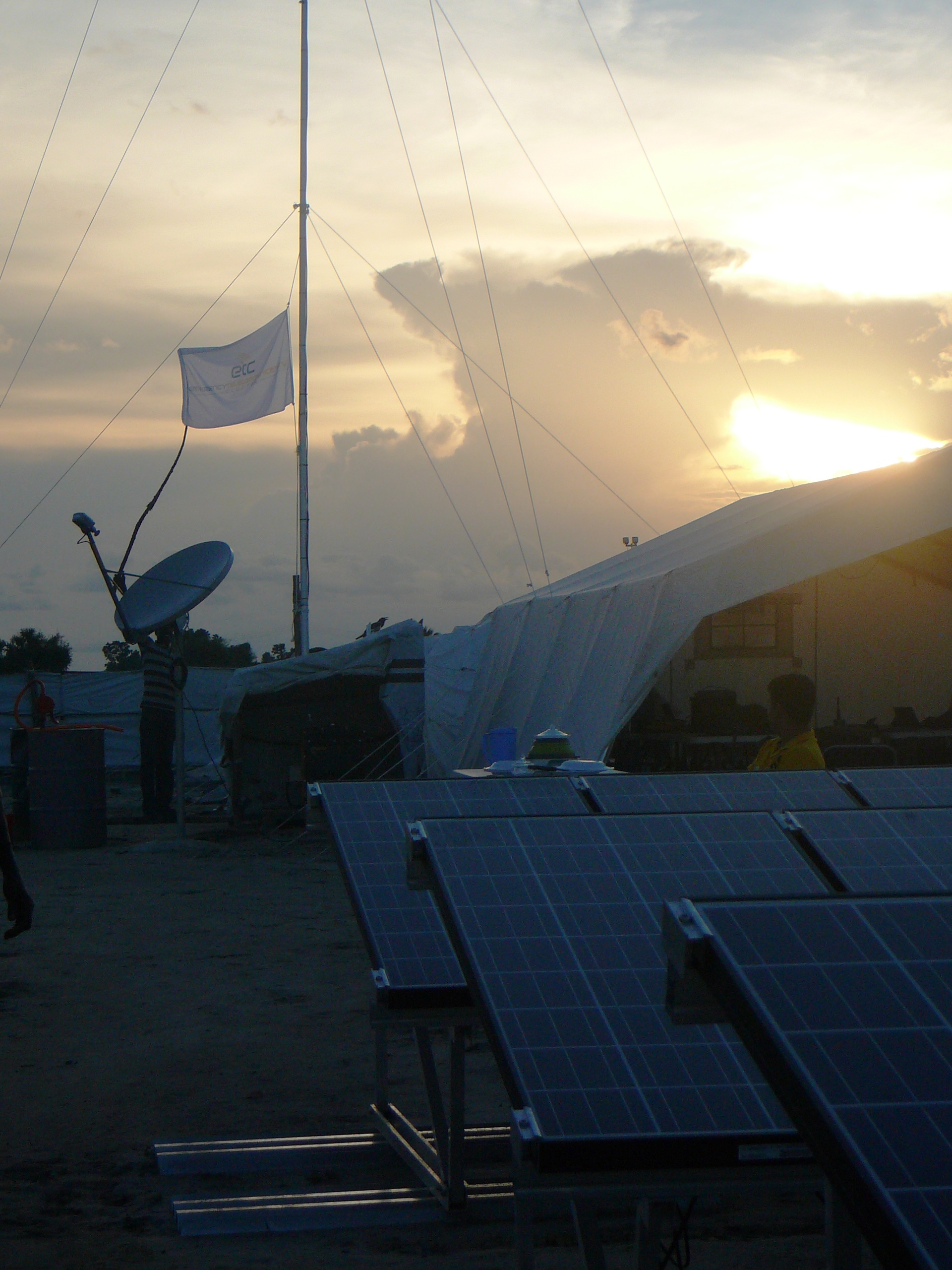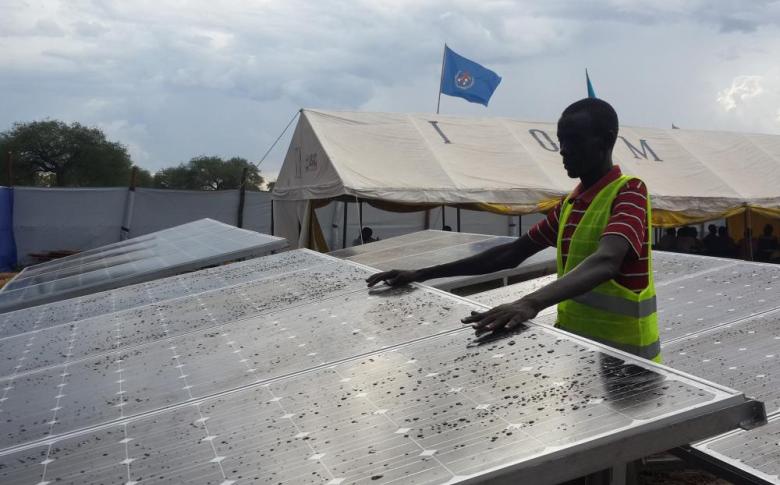
Here Comes the Sun

Aiming for a 100% green energy goal in South Sudan
Responding to the humanitarian crisis in remote areas of South Sudan means working and living with a near constant feeling of uncertainty. Will it rain today, thus slowing down operations? Will there be fighting in this area? What if the road we need is not accessible, stopping goods from being delivered? Will there be flights to my location to make sure I get in and out when I need to? Where will we get fuel for the generator? Will Internet connectivity be stable enough for us to successfully run our coordination activities? There are indeed many variables that impact humanitarian work. Yet, there is one thing we can be sure about in South Sudan - the sun will shine. No matter how rainy the day is, sooner or later a bright sun will appear.
With that in mind, the Emergency Telecommunications Cluster (ETC), always on the lookout for innovative, efficient and sustainable approaches, has identified the shift to renewable solar power as the most suitable solution to support the humanitarians responding to the conflict in South Sudan. Investing in a reliable and sustainable power source allows for immediate benefit in specific locations as well as long-lasting stability for the country as a whole. In line with the ETC2020 strategic priority of Enhanced Connectivity and Energy, renewable power will be part of the journey of South Sudan towards self-sufficiency and stability.

Acknowledging early on the exceptional potential of investing in sustainable systems, the ETC is already providing renewable and reliable solar solutions to four humanitarian sites across South Sudan. The systems have been installed in the capital Juba, in Ganyliel, located in the conflict-affected Unity state, as well as Bor (Jonglei) and Mingkaman (Lakes). These are the ETC’s first steps towards our ambitious goal of converting all ETC sites to renewable power systems.
In the sites where solar power has been implemented, it is already a success. Firstly humanitarian responders now have continuous access to reliable Internet connectivity, security lighting and additional power. Moreover, the solar shift significantly reduces, if not eliminates, the power bill as well as the maintenance needs and costs. Overall, the ETC is empowering humanitarians at the local level, as they are now able to manage their own resources sustainably. By moving to renewable power, the ETC demonstrates its global commitment in integrating environmentally friendly solutions to emergency responses.
This approach also shows, once more, how the ETC response inevitably looks beyond the horizon of emergency telecommunications. We save lives by reducing uncertainty, making sure that our colleagues across South Sudan are always connected, always safe, never isolated. Reliable and abundant solar power serves these purposes by both powering the ETC equipment and significantly improving the response and livelihood of humanitarians operating in remote and hard-to-reach areas.
Now, looking up at the powerful sun in South Sudan, it’s impossible not to think that somewhere in this vast country, a group of people can finally access Internet 24/7, as well as improved power and lighting. They can finally make the most of their work, saving lives in the deep field. Solar power sheds light on the work of the humanitarians responding to the emergency where it’s most needed. This is the ETC – it keeps you connected and safe, never isolated, no matter where you are.
By Sofia Grivet Brancot, ETC Information Management Officer, South Sudan